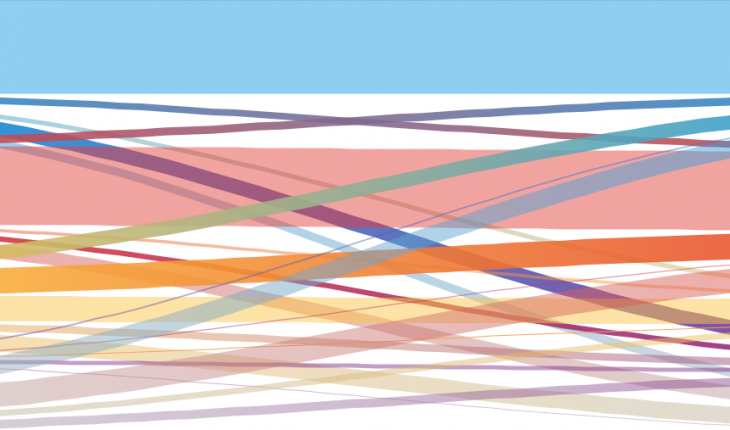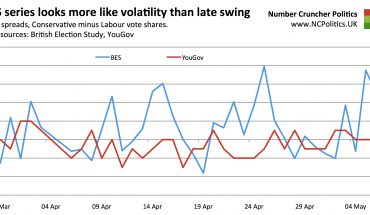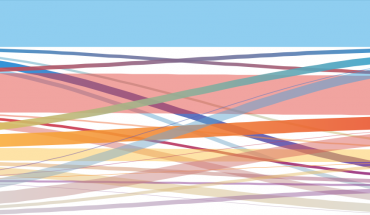The House of Lords Select Committee on Political Polling and Digital Media released its report overnight. The report calls for “tighter oversight” of polling, particularly during campaigns, and a beefed-up roll for the British Polling Council in coordination with the Market Research Society, Electoral Commission and media regulators, and formal public reviews of performance, but stops short of calling for statutory regulation or blackouts.
The press release begins: “The polling industry needs to get its house in order. Otherwise the case for banning polling in the run-up to elections – one we for now reject – will become stronger.”
Of course, going from extremely weak to very very weak does technically imply becoming stronger. But the case is extremely weak, for two key reasons, both of which are acknowledged in the report. Firstly, blackouts are unworkable, because there’s nothing to stop the overseas media (easily distributable via social media) conducting and publishing UK polls.
But secondly, the pro-blackout argument misunderstands the role that polling plays in campaigns. Yes, it’s true that polls can influence peoples voting behaviour. But it’s not the polls themselves that are doing the influencing, but expectations of the outcome based on the polls. Though polling is an imperfect science, it is at least a science, practiced in good faith, and is the most objective measure of public opinion available within realistic time and budget contraints. Without polls, people could still be influenced by their expectations of the outcome, but those expectations would instead be based on rumour, spin, betting markets (which are infinitely easier to manipulate than polls), punditry and goodness knows what else. That’s not a nice place to be.
In summary, the recommendations are that the BPC should:
- Develop a definition of what constitutes a scientific poll
- Increase guidance for journalists, including providing training
- Call out poor reporting
- Issue guidance on methodological best practice
- Provide an advisory service for reviewing poll design
- Require greater transparency on funding
- Conduct a full review of polling industry “conduct” after each general election or referendum
There’s a lot to go through here, and it will certainly be gone through in the coming days. But a couple of concerns jump out immediately.
Firstly, “methodological best practice” and an “advisory service for reviewing poll design” seem to suggest a degree of prescriptiveness that the BPC – as currently constituted – wouldn’t dream of. I’d be particularly interested to see the BPC and the pollsters’ reactions to these ideas.
And secondly, all of these plans sound expensive. At the moment, the BPC is run by committees of volunteers. How will the smaller pollsters in particular cope with the added cost and bureaucracy, and might these burdens deter precisely the type of innovative new entrants that most would agree are needed? Details matter…
But for now, the innovative new entrants are arriving. Yesterday I wrote for Bloomberg View about how the industry is evolving and the issues around sampling are being addressed. While it’s early days, the initial results from some of these methods seem encouraging.
Elsewhere, some fresh polling from Sky Data on Syria suggests net support for air strikes, in contrast to earlier polls as noted yesterday. Whether that’s explained by a difference in question wordings, a difference in methodologies, or a genuine shift in public opinion, is hard to say.
YouGov also published “live poll” results on the Windrush immigrants, with 78 per cent saying they should have the right to stay and only 9 per cent saying they shouldn’t, which has to be one of the most pro-immigration poll results I can ever remember seeing in Britain.
And on the local elections, Mark Pack helpfully compiled some records of how accurate the Rallings and Thrasher projections tend to be in non-general election years. And on candidature, the first candidature tallies I’ve seen from any of the parties or their supporters comes from Conservative Home, which says the Tories are standing 4,400 out of a possible 4,413 candidates.
Today might just see an ICM/Guardian poll as we’re well overdue one, plus the inevitable discussion of the Lords report.



